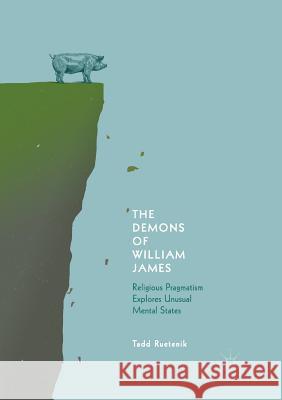The Demons of William James: Religious Pragmatism Explores Unusual Mental States » książka
topmenu
The Demons of William James: Religious Pragmatism Explores Unusual Mental States
ISBN-13: 9783030062699 / Angielski / Miękka / 2019 / 169 str.
The Demons of William James: Religious Pragmatism Explores Unusual Mental States
ISBN-13: 9783030062699 / Angielski / Miękka / 2019 / 169 str.
cena 191,85 zł
(netto: 182,71 VAT: 5%)
Najniższa cena z 30 dni: 191,40 zł
(netto: 182,71 VAT: 5%)
Najniższa cena z 30 dni: 191,40 zł
Termin realizacji zamówienia:
ok. 20 dni roboczych.
ok. 20 dni roboczych.
Darmowa dostawa!
Kategorie:
Kategorie BISAC:
Wydawca:
Palgrave MacMillan
Język:
Angielski
ISBN-13:
9783030062699
Rok wydania:
2019
Dostępne języki:
Ilość stron:
169
Waga:
0.22 kg
Wymiary:
21.01 x 14.81 x 0.97
Oprawa:
Miękka
Dodatkowe informacje:
Wydanie ilustrowane











